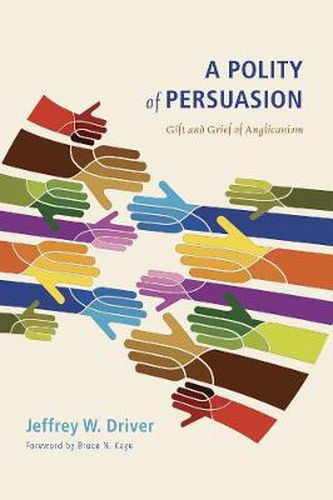Readings Newsletter
Become a Readings Member to make your shopping experience even easier.
Sign in or sign up for free!
You’re not far away from qualifying for FREE standard shipping within Australia
You’ve qualified for FREE standard shipping within Australia
The cart is loading…






This title is printed to order. This book may have been self-published. If so, we cannot guarantee the quality of the content. In the main most books will have gone through the editing process however some may not. We therefore suggest that you be aware of this before ordering this book. If in doubt check either the author or publisher’s details as we are unable to accept any returns unless they are faulty. Please contact us if you have any questions.
At an international level, Anglicanism has almost no mandating or juridical power. Stresses and threats of division over issues such as human sexuality have resulted in moves to enhance the Communion’s central structures and instruments. However, it is becoming clear that there is little likelihood of substantial change in this direction succeeding, at least in the medium term. The challenge for Anglicanism is to make a polity of persuasion work more effectively. This volume seeks to identify some trends and shifts of emphasis in Anglican ecclesiology to serve that end. Jeffrey Driver argues that there is more at stake in such an exercise than Anglican unity. In an ever-shrinking, pluralist, and conflicted world, where oneness is often forced by dominance, the People of God are called to model something different. The injunction of Jesus, it is not so among you, challenged his followers to use power and live in community in a way that contrasted with what occurred among the Gentiles (Mark 10:41-45). This is why the sometimes tedious debates about authority and structure in the Anglican Communion could actually matter–because they might have something to say about being human in community, about sharing power and coexisting, about living interdependently on a tiny and increasingly stressed planet. The Anglican experiment in dispersed authority, for all its grief, could be a powerful gift.
$9.00 standard shipping within Australia
FREE standard shipping within Australia for orders over $100.00
Express & International shipping calculated at checkout
This title is printed to order. This book may have been self-published. If so, we cannot guarantee the quality of the content. In the main most books will have gone through the editing process however some may not. We therefore suggest that you be aware of this before ordering this book. If in doubt check either the author or publisher’s details as we are unable to accept any returns unless they are faulty. Please contact us if you have any questions.
At an international level, Anglicanism has almost no mandating or juridical power. Stresses and threats of division over issues such as human sexuality have resulted in moves to enhance the Communion’s central structures and instruments. However, it is becoming clear that there is little likelihood of substantial change in this direction succeeding, at least in the medium term. The challenge for Anglicanism is to make a polity of persuasion work more effectively. This volume seeks to identify some trends and shifts of emphasis in Anglican ecclesiology to serve that end. Jeffrey Driver argues that there is more at stake in such an exercise than Anglican unity. In an ever-shrinking, pluralist, and conflicted world, where oneness is often forced by dominance, the People of God are called to model something different. The injunction of Jesus, it is not so among you, challenged his followers to use power and live in community in a way that contrasted with what occurred among the Gentiles (Mark 10:41-45). This is why the sometimes tedious debates about authority and structure in the Anglican Communion could actually matter–because they might have something to say about being human in community, about sharing power and coexisting, about living interdependently on a tiny and increasingly stressed planet. The Anglican experiment in dispersed authority, for all its grief, could be a powerful gift.